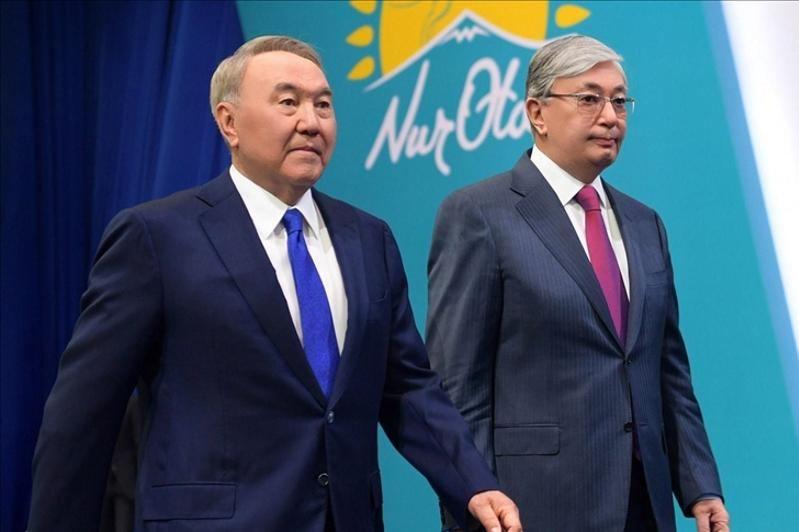Tokaev, Nazarbayev and the (unfulfilled) promise to put an end to nepotism
The President of Kazakhstan claims to have brought about a “great change” in the country's politics and society. And although the former president's clan remains a sort of shadow power, the Astana government continually reports the recovery of assets they took abroad. But according to sociologists Bejsembaev and Tlegenova, there has been no division of powers and the country is ruled by a new generation of autocracy.
Astana (AsiaNews) - Kazakh President Kasym-Žomart Tokaev told a teachers' conference in Astana that ‘the family clan system no longer exists in the country’, the endemic limitation of Central Asian political systems, which Kazakhs have known well in the post-communist thirty years with the saga of the family of the first president, Nursultan Nazarbaev.
Now, according to his successor, ‘the principle of meritocracy prevails in the civil service, and competence and professionalism are the primary considerations in appointments to any position’.
Tokaev repeatedly reiterates this principle of “great change” in Kazakh politics and society, partly to deflect criticism of himself, as he is the main heir to the “Nazarbayev clan”, which installed him in presidential power in 2019 with the aim of preserving its privileges.
Everything changed after Kantar, the “bloody January” of 2022, which could have reduced Kazakhstan back to the status of a Russian colony. To regain the trust of citizens after the violent protests in Almaty, Žanaozen and Aktau, which were stifled by the violence of the special services, leading to the deaths of 238 people, the president stated that “the gap between the rich and the poor in the country has reached an intolerable level, with a group of 162 people owning more than half of Kazakhstan's wealth”, namely the clan of the former “eternal president”.
Since then, as many observers claim, Kazakhstan has been in the throes of a continuous struggle between Nazarbayev's team and Tokaev's, a circumstance that has always been denied by the two contenders. Recently, however, the president gave an interview to the newspaper Ana Tili, in which he claimed that Nazarbayev, who had retained his position as chairman of the Security Council after his resignation, ‘did not distinguish himself for his delicacy in political matters, regularly summoning the prime minister and other ministers, the president of the Central Bank, mayors and officials of all kinds’, which gave the impression of a “shadow power” controlling the life of the country.
In recent years, Nazarbayev, having lost his direct influence on political life, has avoided appearing in public and contesting Tokaev's policies in any way. After the death of his brother Bulat, considered the real ‘CEO’ of the family, even business seems to have declined significantly, although recent scandals have again involved members of the former president's family, against whom, however, no punitive or restrictive measures have been decided. The government regularly reports the return of assets illegally taken abroad by members of the family clan, which seem to be never-ending.
Yet many commentators continue to believe that the system built by Nazarbayev during his thirty years of unchallenged rule remains unchanged, such as sociologists Serik Bejsembaev and Alija Tlegenova of the PaperLab centre, who in an analysis published recently argue that the many reforms announced and promised are merely “decorative”, while the entire power circle of Tokaev's “new Kazakhstan” is nothing more than a new generation of Nazarbayev's “old Kazakhstan”. They also argue that the current president, who in his early years appeared “discreet and open to dialogue”, is increasingly evolving into the classic figure of the “autocrat-patriarch”, as is traditional in these parts.
Sociologists observe that “all current ministers and akimy [mayors] come from Nazarbayev's caste”, such as Prime Minister Olžas Bektenov himself, who spent his entire career in the civil service, becoming head of the anti-corruption agency, and that there has been no “real division of powers”: all decisions are made by the Akorda presidential palace, leaving no room for parliament. At the same time, convictions of human rights activists and independent journalists are on the rise, and even journalists from Radio Azattyk have been denied accreditation, despite all being Kazakh and having valid documents.
20/11/2019 13:48
13/09/2022 18:16
07/01/2022 16:18







.png)










